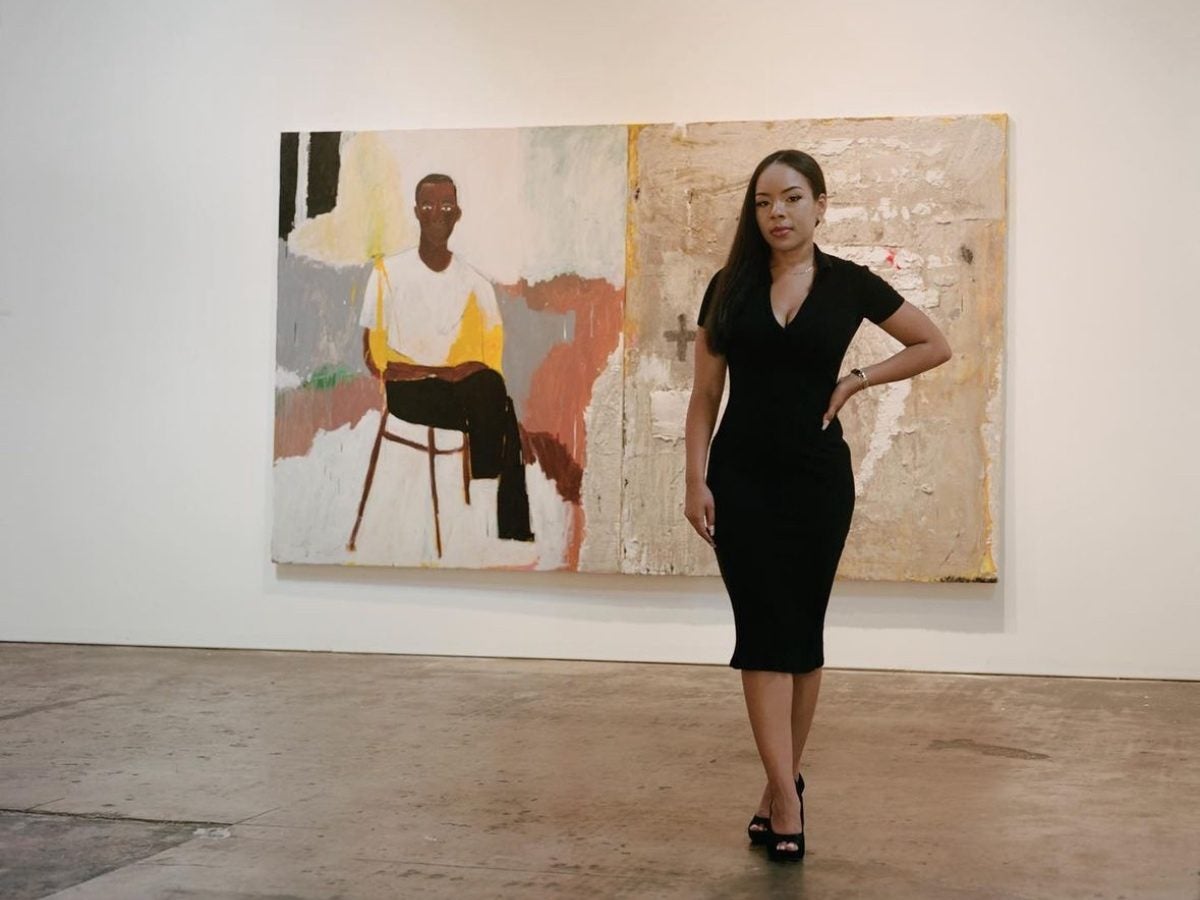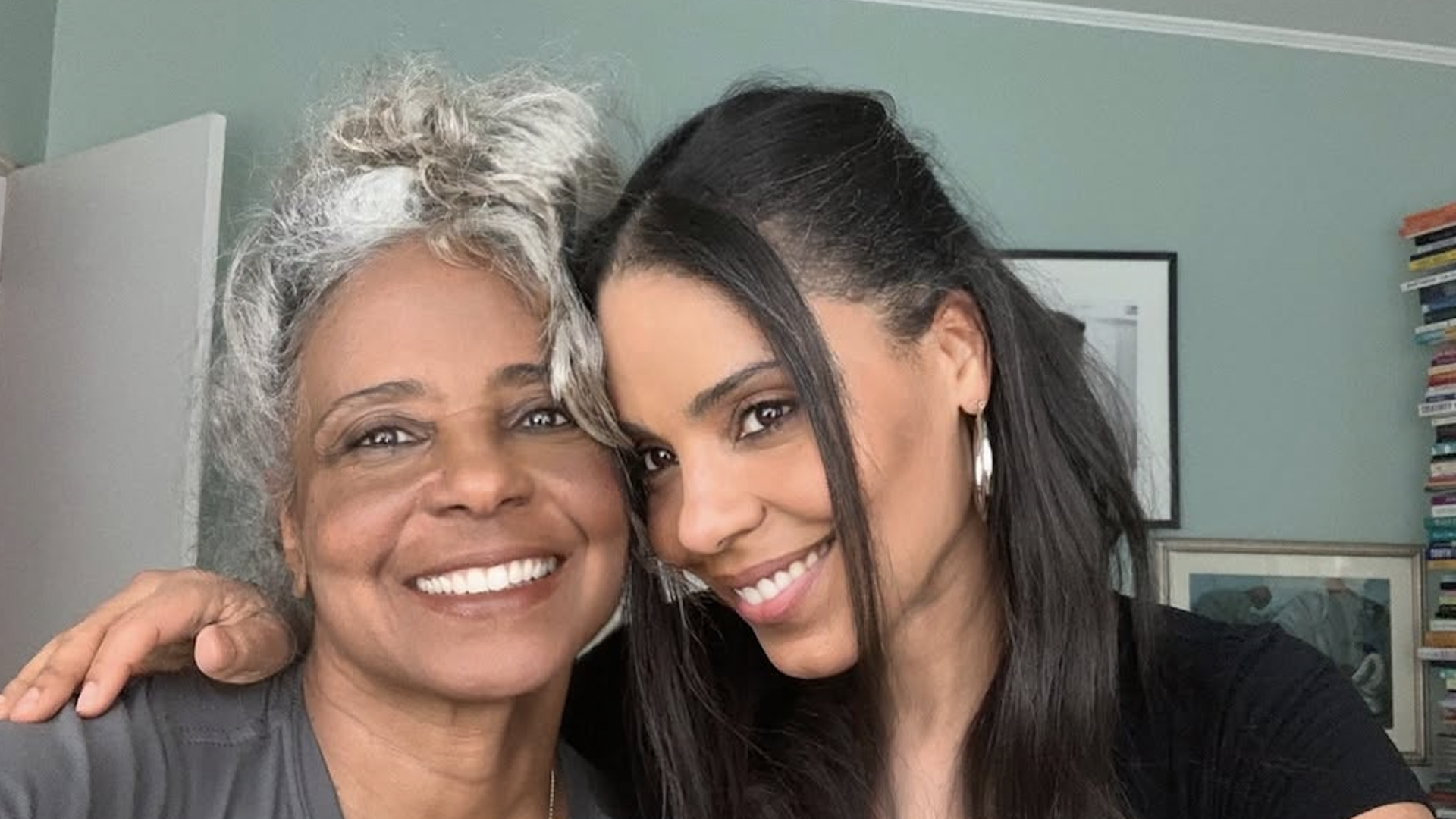
When Kendra Walker founded Atlanta Art Week, her goal was to advocate for artists and highlight the city’s cultural landscape. Now entering its third year, it has become a much-needed effort to bring together galleries, artists, collectors, and art enthusiasts to promote education, economic development, and art appreciation both locally and abroad. For this esteemed art advisor and writer, looking back at the week’s past success is important, but it is paramount that she looks forward to its future, so it can continue to evolve and thrive.
Although this significant event may come to be in 2022, its founder began her art journey long before its impetus. Walker’s introduction to art was serendipitous, sparked by her studies abroad, which exposed her to some of Europe’s most prestigious institutions, including the Louvre and Tate Modern.
“Prior to that trip, I didn’t have any formal background or understanding of the art space,” she recalls. “It was that trip of having formal art history training where I was first put on to the art space,” This encounter, combined with her fine arts studies at Georgia State University and several pivotal internships, laid the foundation for a career that she describes as a “beautiful and unique” experience.
Atlanta Art Week was born from Walker’s observations of the city’s growing art atmosphere. “I was watching how our ecosystems were thriving and being so active,” she explains. Inspired to create a platform that would amplify contemporary art on a regional level, Walker’s vision was to establish a moment in time that would encourage travel, exposure, and expansion for local and international artists. The result was an event that has rapidly gained traction since its inception, attracting over 2,000 ticket holders in its first year.
Reflecting on the event’s early achievements, the Forbes 30 Under 30 honoree credits the enthusiasm of the city’s art community. “I think it was able to prosper the first year because of how ready Atlanta was for something like this to exist,” Walker tells ESSENCE. Without the benefit of a large social media following, AAW was largely driven by word of mouth and support from the local art society.
As the event has grown, so too have the challenges. In the beginning, much of Walker’s effort went into selling the idea of Atlanta Art Week to participants and supporters. “You’re very much in grind mode. Going into year three, that same kind of sales pitch isn’t as necessary.” Now, she finds herself in a new phase, one where reflection and expansion take precedence. “It’s definitely a different set of things we’re thinking about and considering today three versus when we started,” she says.
One of the key aspects of Walker’s work is her identity as a Black woman in the art industry. While she approaches her craft with professionalism, she is acutely aware of how her race, gender, and age play a role in her experiences. “For me, my passion is around Black artists, BIPOC artists,” she says. “I naturally try to aid in opening doors or creating opportunities that I myself would want.” However, Walker is committed to inclusivity, ensuring that Atlanta Art Week represents a wide range of voices and perspectives.
Looking ahead, Walker envisions AAW progressing with time, with an emphasis on expansive programming, innovative exhibitions, and more educational content. She hopes to involve more universities and even schools at the middle and high school levels. As she continues to build on the success of her brainchild, Walker’s dedication to nurturing Atlanta’s art scene and her commitment to creating opportunities for artists remain at the heart of her mission.
“I think Atlanta Art Week has aided in helping individuals from outside the city, internationally, find a moment in time to collectively visit,” Walker states. “It also has created a moment for the Atlanta art community to really come together and really and amplify all the amazing work that is happening—now the world gets to see.”



